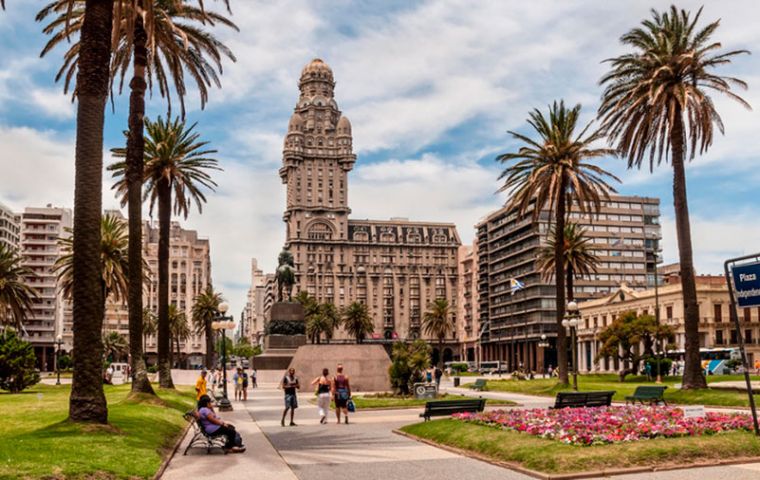MercoPress. South Atlantic News Agency
Mercociudades launches ambitious agenda in Montevideo
 The meeting brought together representatives of more than 25 cities from 8 South American countries
The meeting brought together representatives of more than 25 cities from 8 South American countries An international meeting in Montevideo of municipal authorities from cities all over Latin America has come up last week with a large list of conclusions and recommendations for the times to come and an agenda with more than fifty events to be held in Argentina, Bolivia, Brazil, Chile, Ecuador, Peru, Paraguay, and Uruguay.
According to press reports, two Mercociudades projects for the formulation of regional developments were submitted. A proposal was launched to work with the youth of the cities of the region.
The meeting was chaired by Montevideo Mayor Carolina Cosse and by Mercociudades Chairman and Mayor of Esteban Echeverría (Argentina) Fernando Gray. It was also attended by the mayor of São Leopoldo (Brazil), Ary Vanazzi, who is also vice-president for Sustainable Urban Development and Climate Change.
During the conference, held in Montevideo (Uruguay) March 10 and 11, the lessons learned and results of the project co-financed by Mercociudades, “Reduction of Inequalities with a focus on cross-cutting perspectives of territory, gender and race/ethnicity in public policies”, were also shared.
The first project: the “Scholas Occurrentes” proposal will bring together young people from Mercociudades for a week in Esteban Echeverría to work on the solution of common problems in their cities.
The second project: the course on Decentralized Cooperation and mainstreaming of the 2030 Agenda, organized jointly with the National University of Córdoba and the Uruguayan Agency for International Cooperation.
The work agenda also includes the first Intermediary Cities Laboratory planned by the Vice-Presidency of Institutional Relations (Cosse), to enable the development of skills and competencies in technology-related issues, as well as providing the necessary tools to unemployed people to enhance their employability.
The meeting also included the launching of the call for the Regional Training Program for the formulation of projects, in which civil society organizations and educational institutions wishing to present joint projects with local governments in the region are invited to participate.
In addition, a new edition of the Mercociudades School of Resilience was launched, which advises local governments on the design and implementation of resilient strategies for urban development.
The meeting brought together representatives of more than 25 cities from 8 South American countries, together with representatives of university institutions in the region and various organizations, including the National University of Córdoba, UN-Habitat, the United Nations Office for Disaster Risk Reduction, the Ibero-American General Secretariat, the Global Coalition of Mayors for Climate and Energy, and the Uruguayan Association for International Cooperation.




Top Comments
Disclaimer & comment rulesCommenting for this story is now closed.
If you have a Facebook account, become a fan and comment on our Facebook Page!